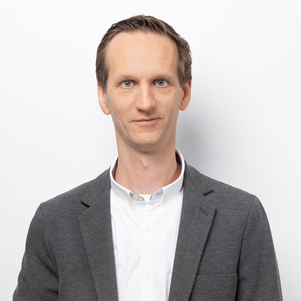Convergence Relay 3: Jacob Hoogenboom
Convergence Relay episode 3 features Jacob Hoogenboom. He is one of the drivers of the CIFIC flagship. ‘We want to accelerate the availability of new techniques to medical scientists.’
Jacob Hoogenboom develops new methods, techniques, and instruments for microscopy with his research group at TU Delft. Within the CIFIC flagship (Convergent Imaging Facility and Innovation Centre), he collaborates with Erasmus MC’s Optical Imaging Centre and is getting more familiar with the medical side.
And that’s important, according to Jacob: ‘You can come up with a completely new and smart instrument as a physicist or engineer. But if the operator fails in using it for the questions they are interested in, it’s of little use.’ With that in mind, Jacob and his colleagues submitted the proposal for the CIFIC flagship.
Application-oriented
The cornerstone of the flagship is application-oriented work; Jacob explains: ‘Under a microscope, you rarely look at something alive, but at a sample of it. You must extract that sample, preserve it, and then apply contrasting or labelling techniques. Those techniques must be compatible with the microscopy technique you use. Otherwise, you will never visualise what you aim to visualise.’
By working application-oriented, researchers at CIFIC can already optimise the sample preparation while the microscopy technique is still in development. Consequently, the innovator and the operator are better aligned, and the techniques are more quickly applicable.
Moreover, this way, Erasmus MC’s optical imaging centre operators already gain access to the prototypes. ‘In medical centres, there is access to commercially available state-of-the-art microscopes. But at TU Delft, we have techniques that are beyond state-of-the-art. We want to give the life sciences scientists at Erasmus MC access to techniques not yet available anywhere in the world.’
You can read the whole story here.
Source: Convergence - Crossing Boundaries
